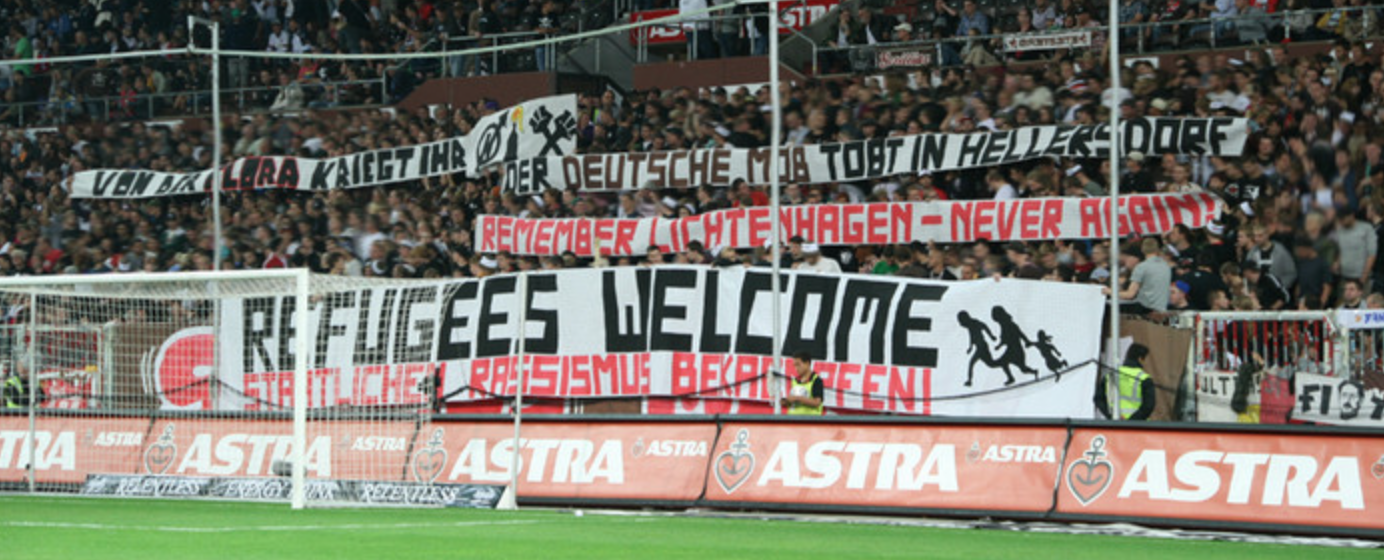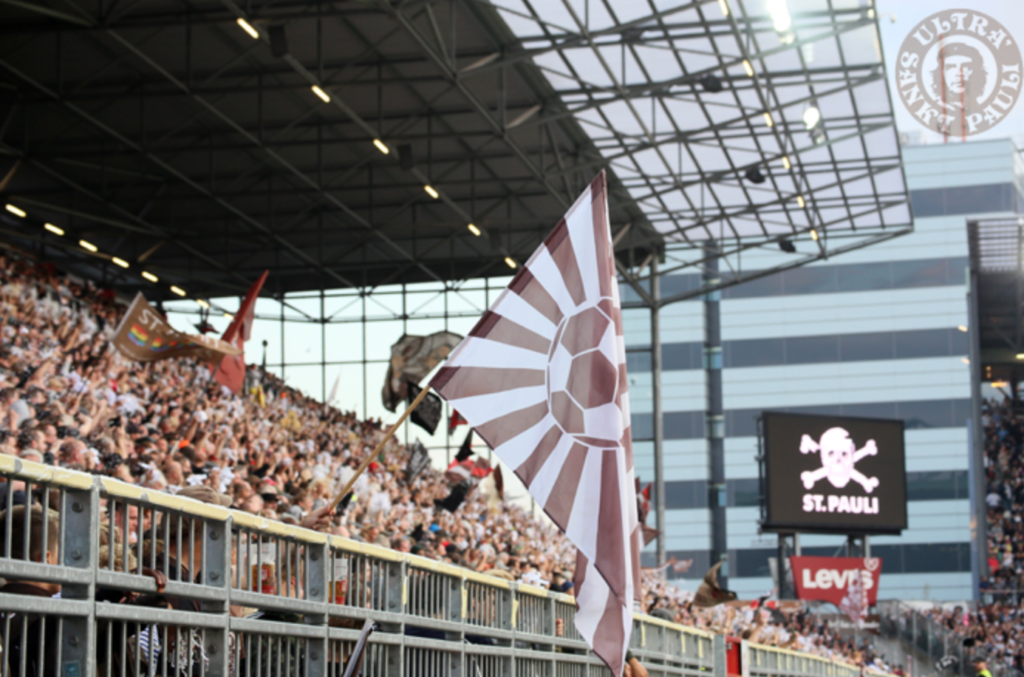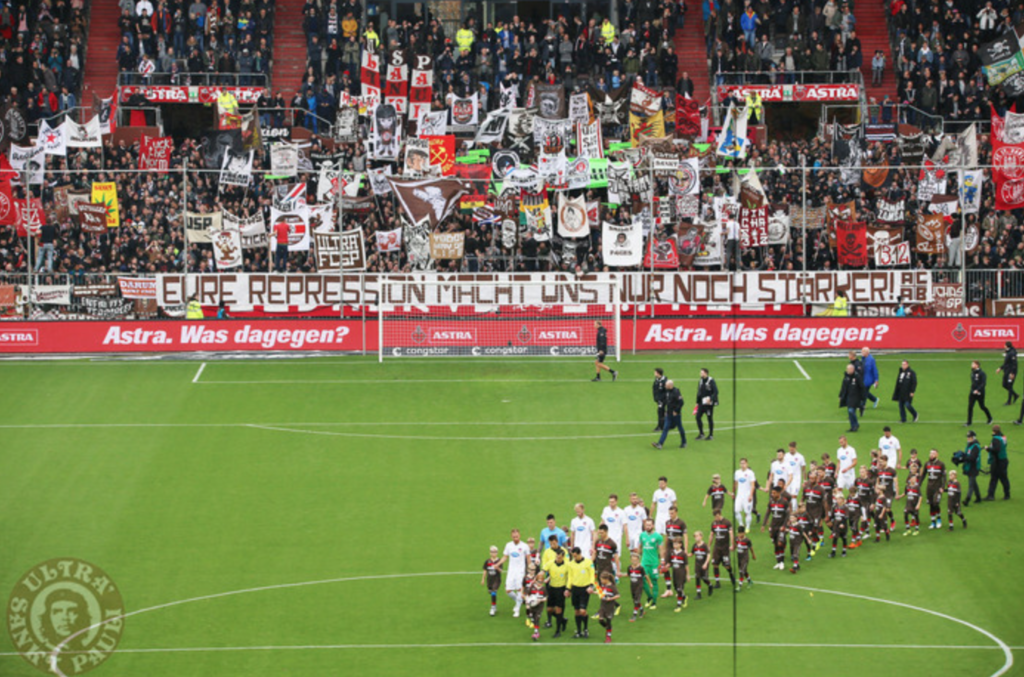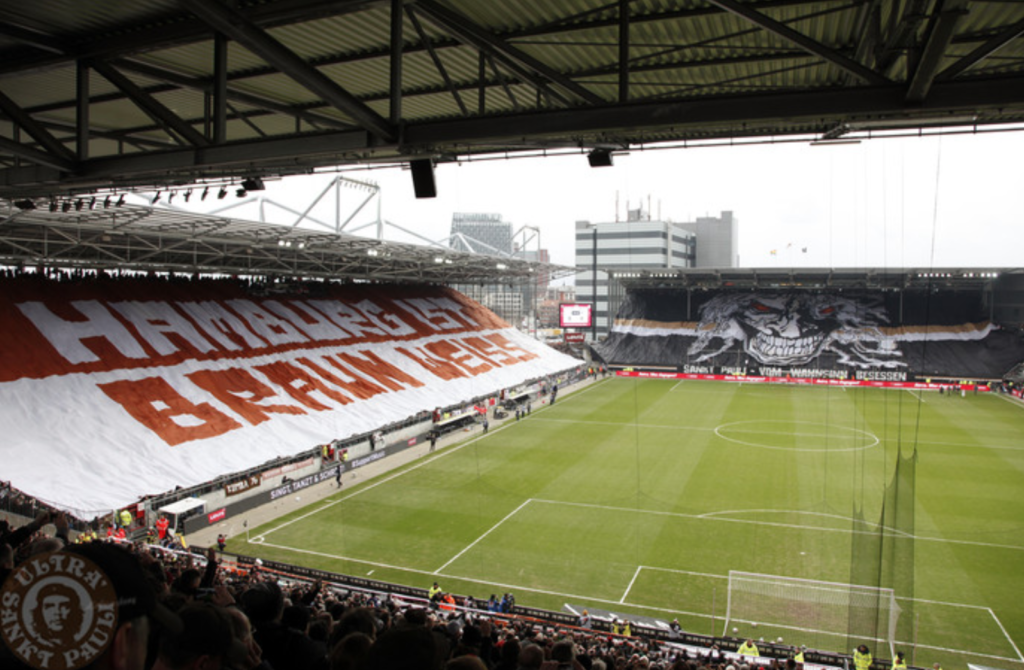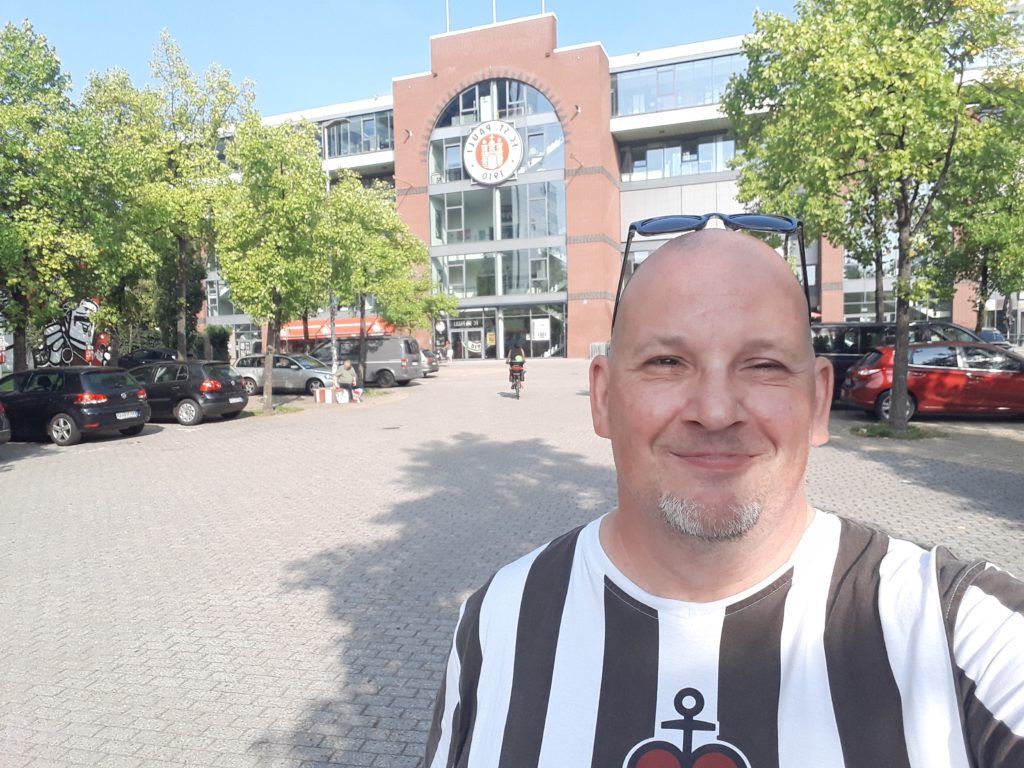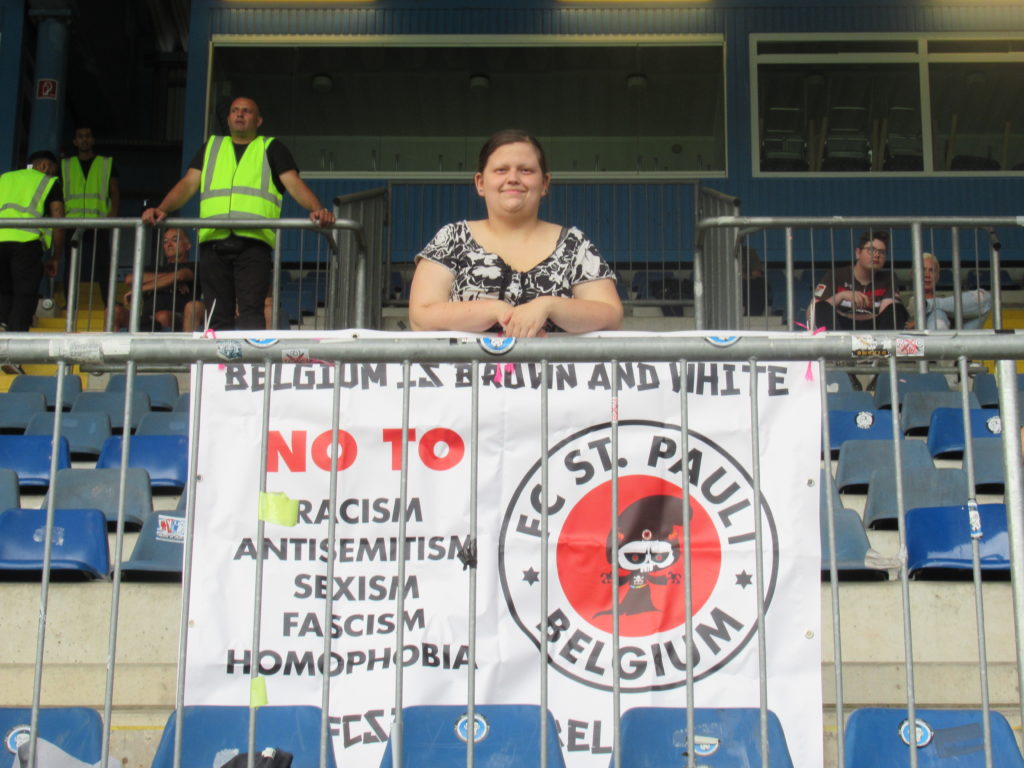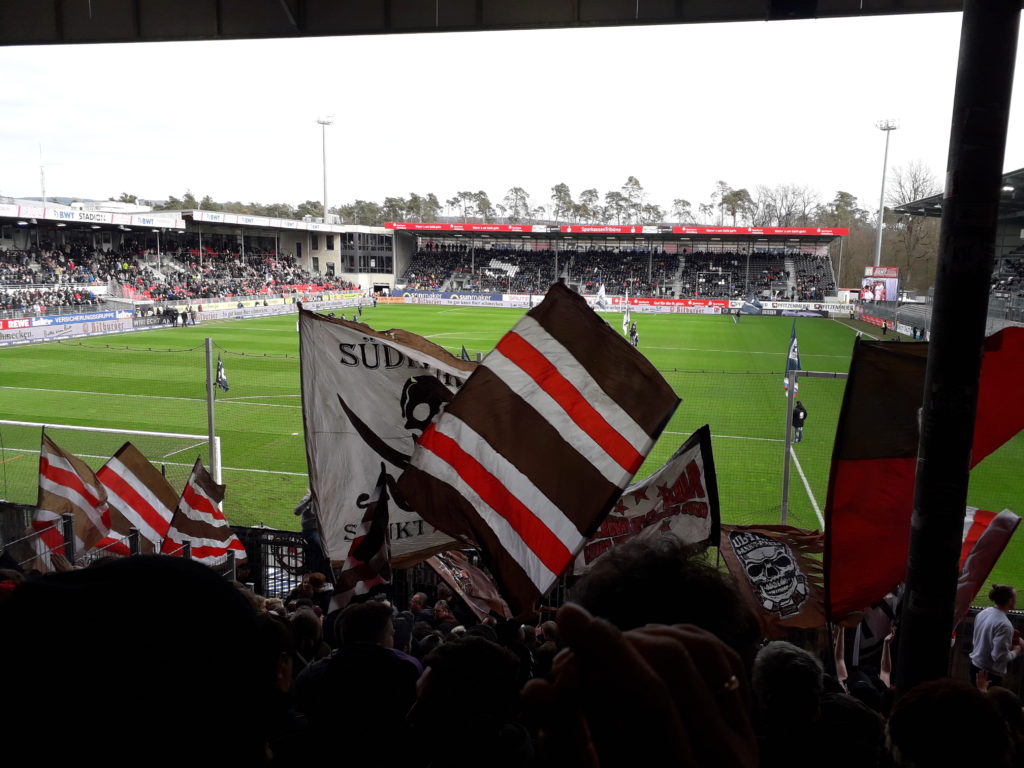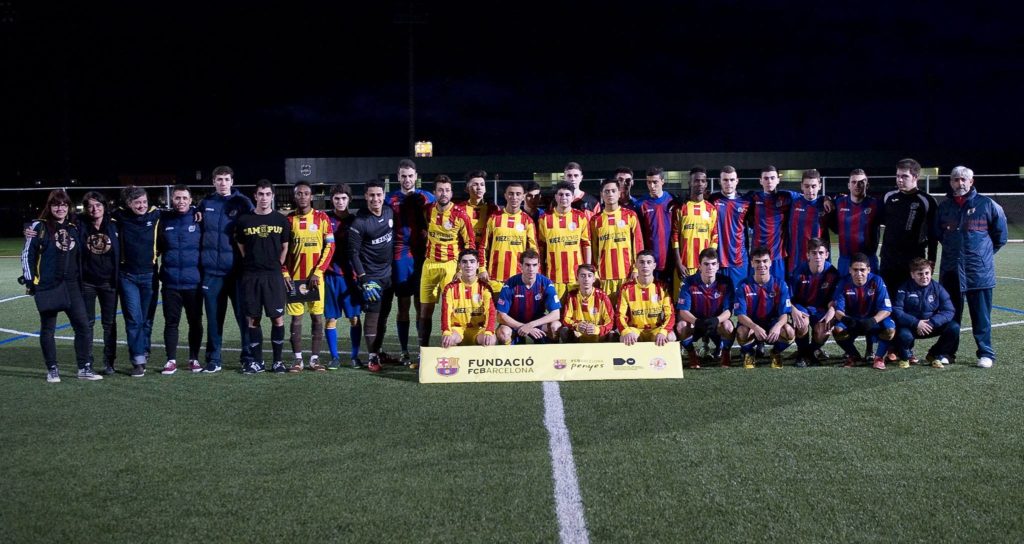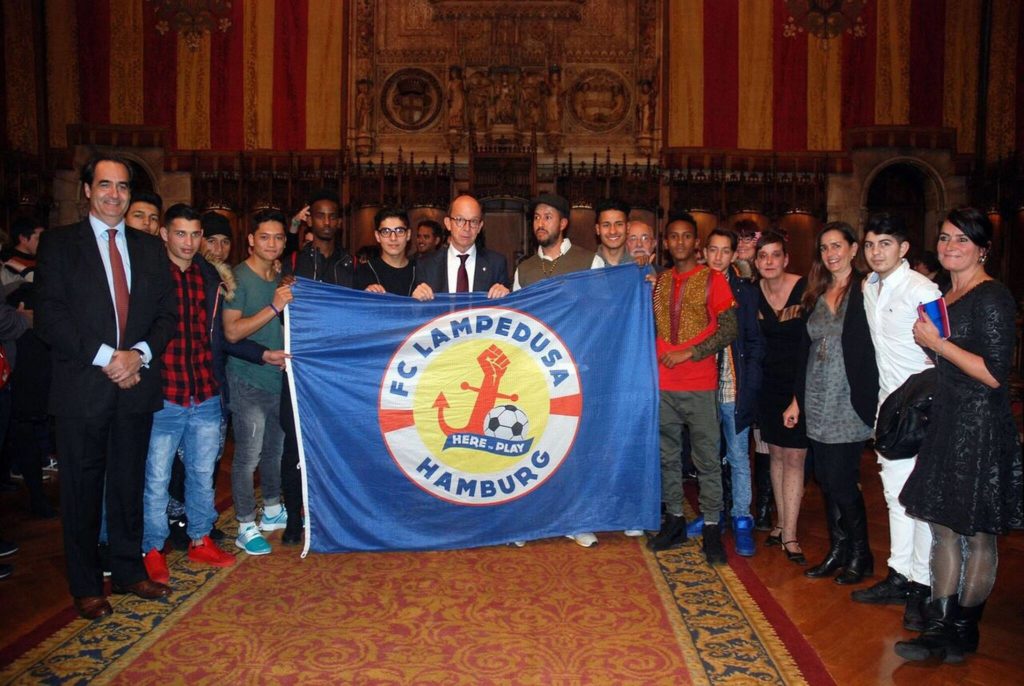St. Pauli’s left wing approach and determination to promote equality has helped it establish a global fanbase. But how is a lowly club in the second division of German football leading the fight against racism?
Football is more than just a game, especially in Germany, a country known for its unique fan culture. Supporters in Germany are extremely passionate about their football, and the sport is one of the pillars of their culture. But fans of German clubs aren’t afraid of pushing the envelope and using football to highlight social issues either. A number of German clubs and their fan groups have taken the fight to kick racism out of football in recent years. And leading that fight against racism has been to a relatively small team in the second division of the German football pyramid – St. Pauli.
“Some clubs in Germany have done a remarkable job in combatting racism. St. Pauli are the perfect example of this. They aren’t afraid of losing supporters or telling them, ‘that if you are a racist, you don’t belong to our club.’ A lot of clubs try to be apolitical, but St. Pauli do not hide their left wing policies, even if they may alienate sponsors, fans or the media. They are outright saying racists can go straight to hell, basically”
Constantin Eckner, Bundesliga Journalist
Football clubs often talk the big talk about their desire to get rid of racism from the sport. But in terms of actually walking the walk and fighting against discrimination, the efforts and determination of St. Pauli remain unmatched.
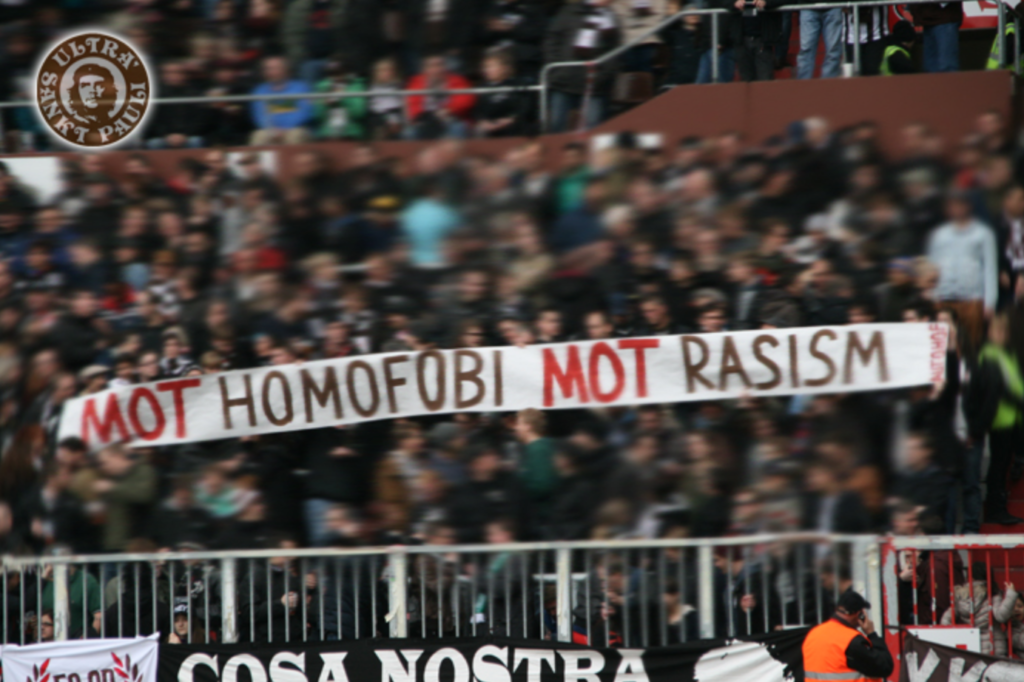
“Against homophobia, Against Racism” 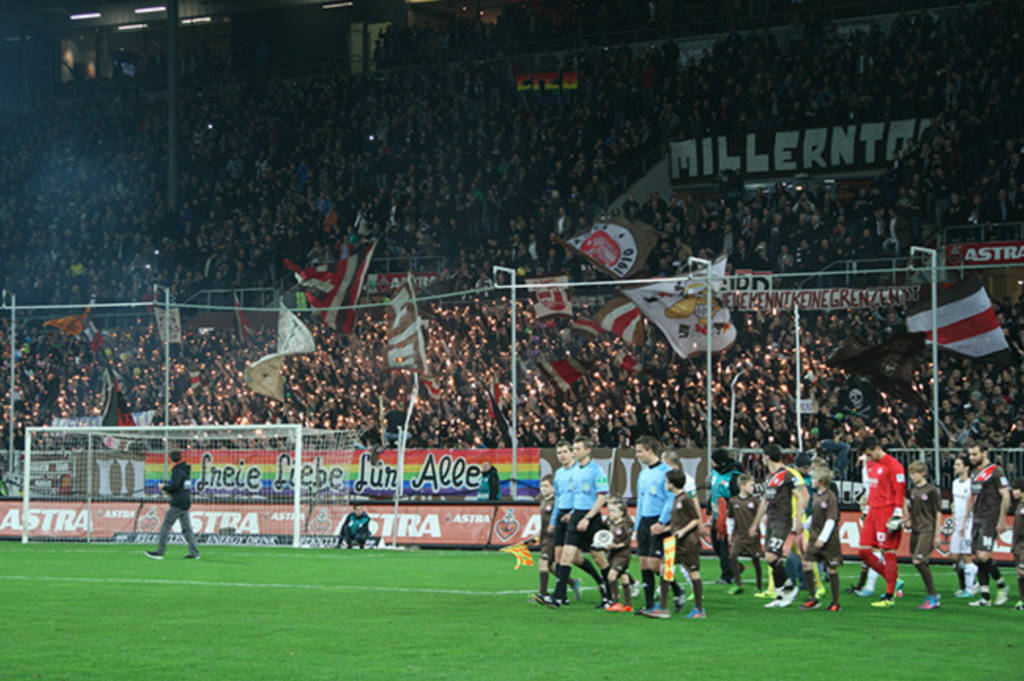
“Free love for everyone” 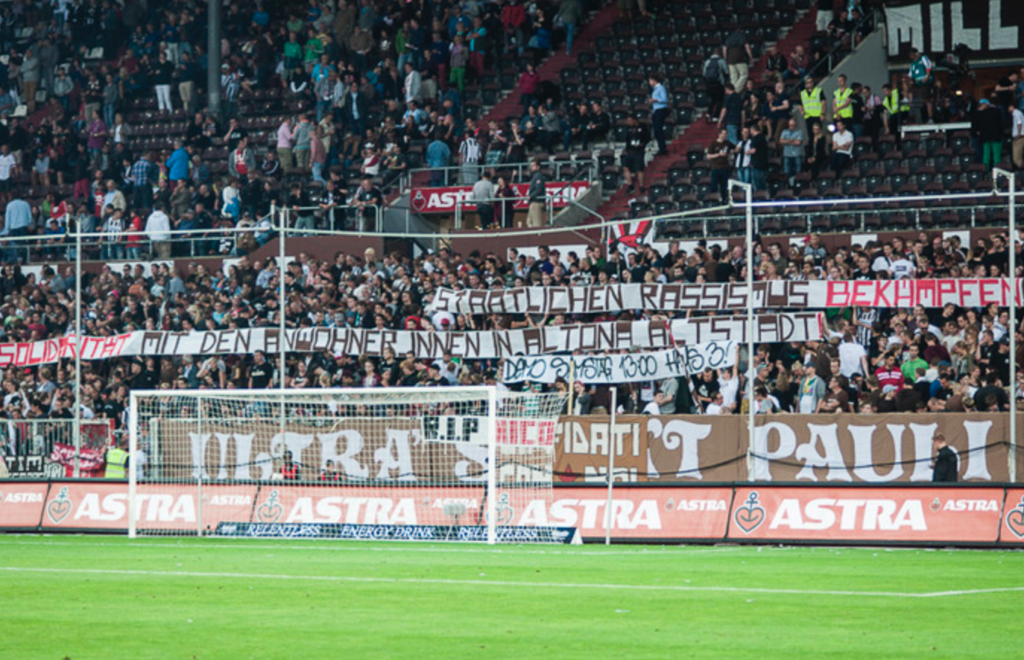
“Solidarity with the inhabitants of Altona-Altstadt, fight the racism of the state!” 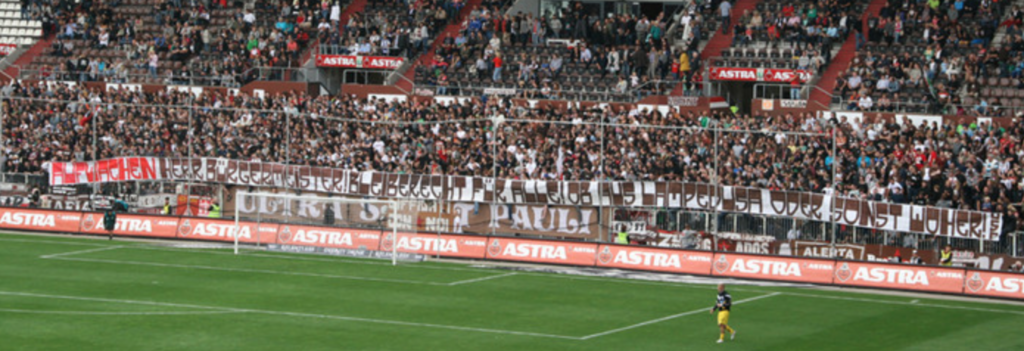
“Wake up, Mr. Mayor! Residency rights for all! If from Lampedusa or from elsewhere!”
Officially established in 1910, it took decades for St. Pauli to transition from just another club to the cult phenomenon that it is today. Racism and fascism were prevalent in Germany in the 1980s, and right wing extremists and anti-fascist groups regularly clashed.
The voices of right-wing extremists and organised hooligan groups started to become stronger and stronger at stadiums all across Germany, including at Hamburg SV. And fans decided to look for an alternative club, where they could practice a different fan culture and follow their values.
They found that at St. Pauli, which became increasingly popular as a result of the club’s left leaning politics, punk culture and social activism. Since then, St. Pauli has become a global brand, thanks to its unique culture and no-nonsense approach against any discrimination.
For St. Pauli supporters, the club’s values are more important than what happens on the pitch. St. Pauli may not have won a trophy since the late 70s. But the club still enjoys a cult-like following. People turn up from all parts of the world to watch the team play, ensuring that the Millerntor-Stadion always has an electric, party atmosphere, no matter how the team performs on the pitch.
St. Pauli is a club that transcends football, and its firm anti-discrimination and anti-establishment principles have made it a home those who have become disillusioned by everything that is wrong with modern football. Not afraid of alienating sponsors, some fans, or the powers that be, St. Pauli have never been shy of mixing their left-wing political values or activism with football.
St. Pauli’s skull and crossbones symbol has become synonymous with the club’s values of anti-fascism, anti-racism, anti-sexism and anti-homophobia. In 2009, the club became the first in Germany to adopt a set of guiding principles, including social responsibility, tolerance, respect and self-critical evaluation. Both the club, and its fans often take part in demonstrations of solidarity that support their cause.
For many, St. Pauli is not just another football club, but a way of life. One such fan, who travels to every St. Pauli match all the way from Belgium, is Danny Janssen.
“St. Pauli’s values checked all my boxes. In 2008, I went to my first St. Pauli game, and I was sold,” Danny says. “I had found my new first love, and it was St. Pauli. For me, St. Pauli is 80% values and 20% football. Otherwise it is not possible to be a St. Pauli fan. Because after four games you’ll want to quit” (Laughs).
Danny wasn’t always a St. Pauli fan, but after seeing his hometown club Racing Genk ‘follow money and commercialism’ over the more traditional values, he decided that he’d had enough. He then came across St. Pauli, and Danny believes that the club is now the most important thing in his life along with his family.
After falling in love with St. Pauli, Danny set up the St. Pauli Belgium Fan Club, which now has nearly 50 members. Like St. Pauli, Danny has zero tolerance towards any forms of discrimination. So when he found out that his parents were racists, he decided to end his relationship with them.
“My parents, they are racists. The issue started to become bigger and bigger for me, and I told them, ‘let’s quit. You have your life, I’ll have mine.’ When your mother says aloud to you that I’m a racist, then you cannot have her in your children’s lives.”
Danny Janssen, FC St. Pauli Belgium Fan Club
“For me, St. Pauli is not left, it is human,” Janssen adds. “Racism, homophobia, fascism have nothing to do with left or right wing. Everybody is human. You are either against racism, or for racism. There is no road between.”
Danny feels that some clubs only post about fighting against racism on their social media to appease their sponsors and attract retweets. But St. Pauli has a genuine passion and determination to kick racism out of football. And he’s not wrong either.
In partnership with their Fanladen or fan groups, St. Pauli organise a number of projects, including annual trips to the Auschwitz concentration camp, memorials, anti-racism workshops, social projects, events, demonstrations, and working with refugees to promote inclusion. The club often opens its stadium for protestors and refugee groups to sleep and eat in, and free legal advice is also offered twice a month to migrants who need it. Social causes and promoting equality are as important to the club and its fans as results on the pitch, if not more.
The Kiezkicker have over 400 registered supporters clubs, including fan clubs in the United States, Canada, Brazil, Australia and many other countries. And they are not fan clubs that only get together to watch football matches. These supporters clubs actually put in the time and effort to hold events against discrimination, promote the club’s causes, and help refugees in need.
The club also played a crucial role in establishing an amateur team known as FC Lampedusa St. Pauli, which has given refugees in Hamburg a chance to play football.
FC Lampedusa St. Pauli was started by accident when 300 refugees fleeing the war in Libya in 2012 arrived in Hamburg via the Italian island of Lampedusa. They received a frosty reception, and were only given a small one-time stipend to live on. The local government even tried to send them back to Italy. So they turned to FC St. Pauli for help with their protest.
The club was more than happy to oblige, and FC Lampedusa St. Pauli was born with the mission of ensuring that everyone can play the beautiful game.
Since its inception in 2014, more than one hundred refugees have donned the team’s colours. As many of the migrants do not have official papers, the team takes part in a series of friendlies and amateur tournaments, including anti-racism tournaments across Germany to raise awareness about the refugee crisis.
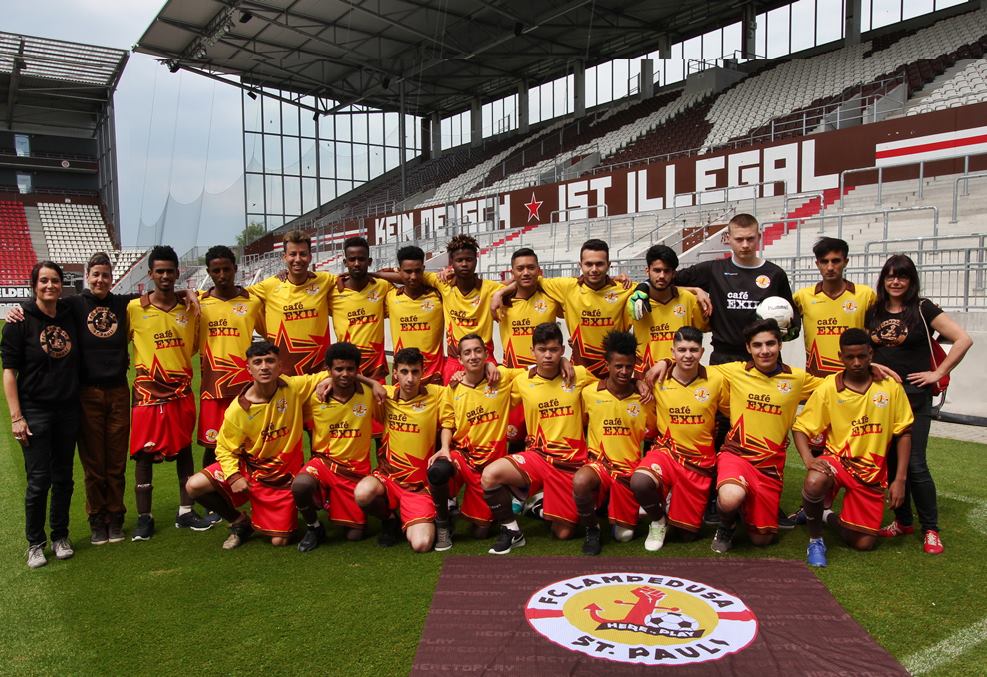
Nico Appel and Hagar Groetke, who are part of FC Lampedusa St. Pauli’s all-female coaching staff believe football should be for everyone, irrespective of people’s skin colour and whether or not they have official papers. They used to play for the St. Pauli women’s team, playing a key role in its inception. They now help train the FC Lampedusa players, organise training sessions, as well as matches.
When they are not leading training sessions, Nico and Hagar work as activists with St. Pauli to help spread the club’s message against fascism. They have been with the club since the 1980s, and have been through many highs and lows. Hagar says that St. Pauli’s success in the fight against discrimination has been because of their collective struggle and hard work over the years.
“In the 1980s there was a big meeting of the club and we all went there and they said, ‘okay, we have to kick racism out of this stadium now’. It was clear that all this sh*t stops here now. And maybe now we eat the fruits of the roots we put in the ground in the eighties of the last century. Anti racism is now one of the topics of the club from the president to the little children. But it happened the hard way, with a lot of work and a lot of fights.”
Hagar Groetke, Coach, FC Lampedusa St. Pauli
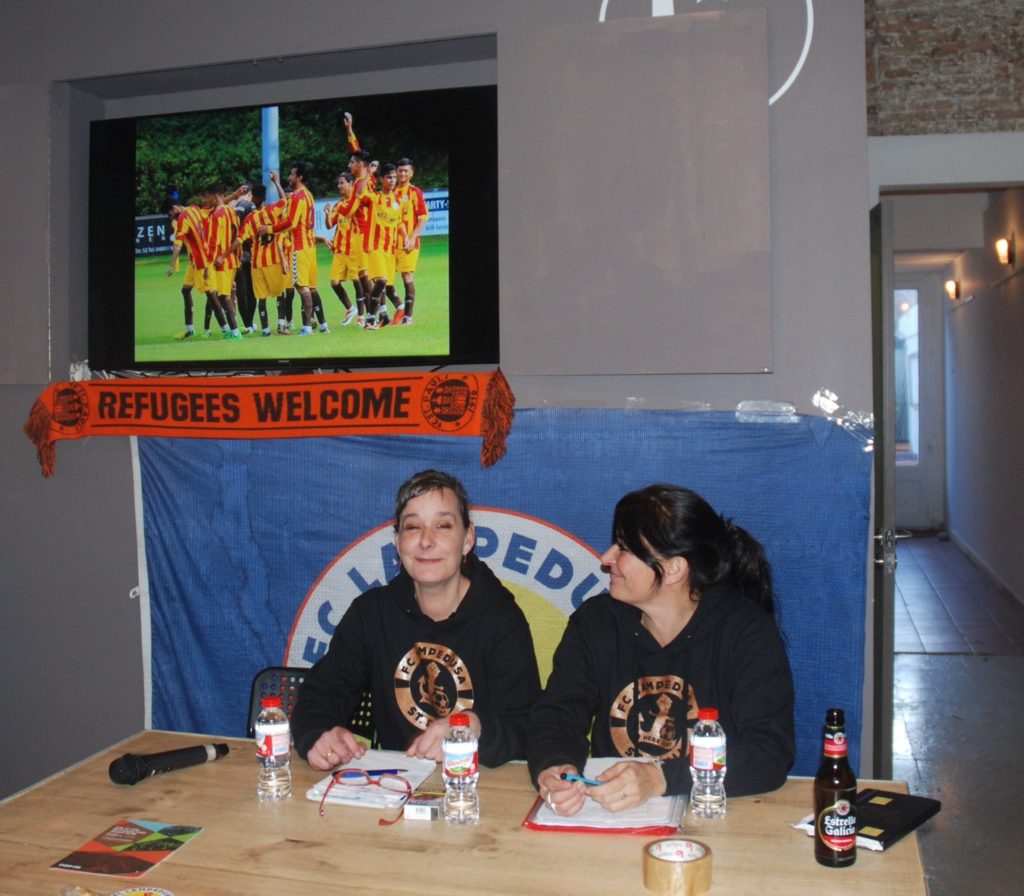
Nico and Hagar have been St. Pauli supporters since the 1980s, but their determination to fight for equality still remains the same. But in-spite the club’s objectives of promoting equality, ensuring the safety of the refugee players hasn’t always been an easy job.
“When we started, there were 300 refugees just coming via Lampedusa, and 100 of them were sheltered in the church,” Nico says. “Some of the club’s ultras had to stand outside the church 24×7 to protect the refugees, because we didn’t know what was going to happen.”
“Sometimes when we’re travelling in the train, other passengers are sometimes a bit scared to see people of a different skin colour entering the train,” Nico adds. “But after seeing that we’re a football team, they often become a bit more relaxed. There have also been cases where we have required a police escort on our away trips.”
Hagar says, “Three teenagers of colour make them scared, but if it is 20 people and a football team, people become more relaxed. Then it’s football. And football is a language without language that brings people together and the doors open up. That’s the most beautiful thing about football.”
St. Pauli fans across the globe remain committed in their bid to promote equality and spread the club’s message of promoting equality and being against all forms of discrimination. And they will continue to fight for their principles both on and off the pitch no matter how much hard work it involves.
“Our policy is to leave no one behind,” Nico says. “The values of the club like anti-racism, anti-fascism, anti-homophobia are clearly written on the flags, but you have to live it as well. And that means that we have to work hard every day again and again and again. It would be naive if we said there is no racism or fascism anymore, so it’s the daily work. And we will continue to do it.”
For fans, St. Pauli is not only a football club, but a way of life and a means to make an actual difference against the many forms of discrimination that exist not only in football, but also in wider society. Danny, Nico and Hagar highlight the club’s principles every day. And so do the millions of fans St. Pauli all over the world who are breaking down the barriers of hate every day by fighting for equality.
